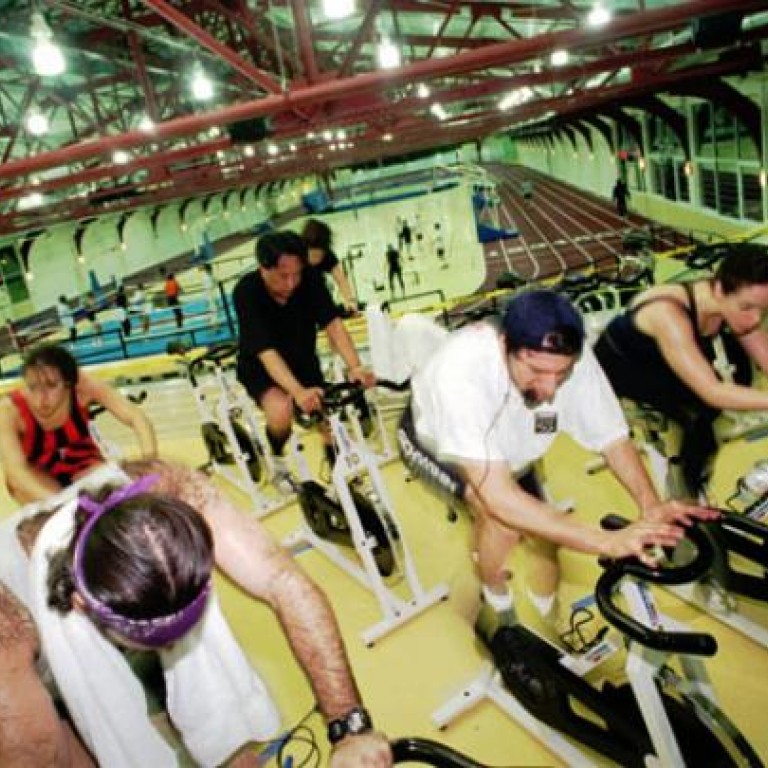
With Olympics over, time to inspire a sporting life
Walter Cheung says it's up to parents, teachers and business leaders to promote the benefits of physical exercise - both at a personal and community level - and convince Hongkongers to change their sedentary lifestyles
As the euphoria over the London Olympics fades, how can we sustain public enthusiasm for sports? How many couch potatoes are now determined to engage in regular physical exercise or participate in sports?
According to a study commissioned by the Department of Health in 2010, sedentary lifestyles are common in Hong Kong. Using the definition of having done "moderate physical activity for at least 10 minutes a day" during the week before, the study found that over half of the local population were not physically active. In contrast, a study by commercial research company Synovate (now part of Ipsos) found that people in Hong Kong spend an average of 140 minutes watching television and 145 minutes surfing the web every day.
In London, International Olympic Committee president, Jacques Rogge, urged Olympians to be role models, saying we should "hope to see the young generations inspired by the values of sport".
While Hong Kong people are justly proud of cyclist Sarah Lee Wai-sze's bronze medal, our city needs an Olympic legacy in the form of an "inspired generation" and action to generate greater interest in sports at the community level. The winning of three Olympic medals in the past 16 years is not enough to galvanise our population into doing more physical exercise.
Many people still treat sports as a form of armchair entertainment - a means to mentally escape from the daily grind or even as a type of "celebrity news". They are content to remain spectators, idolising athletes and players in the same way they might actors or singers.
This "spectator" mentality also underlies the widespread popularity of sportswear brands, with many more people prepared to open their wallets in the name of sporting fashion than sports participation.
We need to do more to popularise regular exercise to enhance community well-being - physical and psychological. But greater participation is crucial not just to improve health and reduce the burden on our health care system. Championing sporting values will help promote positive attitudes and actions in the many different personal and professional interactions of daily life.
While it is important for Hong Kong to strive to win more medals in the international arena through elite-level sports development, we all have the responsibility to encourage others - irrespective of age or ability - to pursue a more active lifestyle.
The type of activity is less important than the act of participation. Hong Kong has many beautiful country parks where we can enjoy a few hours flexing our muscles while feasting on the scenery. We can find small ways to introduce more exercise into our lives - for example, by choosing to use the stairs rather than the escalators at MTR stations.
Parental encouragement plays a very important role in developing young people's interest in sports. Alison Chow Chi-ngan, Hong Kong's highest-ranked female marathon runner, said her father encouraged her and her sister to participate in sports from a very young age.
Our community and business leaders should also promote physical exercise. Employers can help build up a sporting culture by organising sports activities for their staff. Take my employer, Hang Seng Bank, as an example. We provide a wide range of opportunities for members of staff and their families and friends to get more active. More than 20,000 people took part in bank-organised events last year alone, from general fitness and tai chi classes to weekend hikes and sports competitions.
Outside the workplace, companies can take steps to promote sports at both elite and community levels. In 1996, Hang Seng teamed up with the Hong Kong Sports Institute to launch the Hang Seng Athlete Incentive Awards Scheme, under which more than HK$28million has been given to 351 local athletes in recognition of their sporting achievements.
At the community level, the bank has spent more than HK$31million since 1991 to fund table tennis training and development programmes. In 2001, it partnered with the Hong Kong Table Tennis Association to set up a table tennis academy, which has since provided training to nearly 200,000 young people.
At a personal level, individuals can encourage colleagues, friends and family members. I was lured into running after turning 40 by a colleague who is a running fanatic. Over the past 10 years, I have completed 36 marathons and ultra-marathons on five continents. Three months ago, I became the first Hong Kong person to finish the Tenzing- Hillary Everest Marathon - the highest marathon in the world.
I have in turn influenced friends and relatives, including my son. Even my secretary has now run a number of 10-kilometre races and half-marathons.
If Hong Kong is to live up to its claim of being a world city, we need to be dynamic in the physical as well as the business sense. We need to nurture a stronger sporting culture across all social strata and age groups by facilitating participation in an active lifestyle.
I call on everyone to rise to the challenge. People of Hong Kong: On your marks … Get set … Go!
